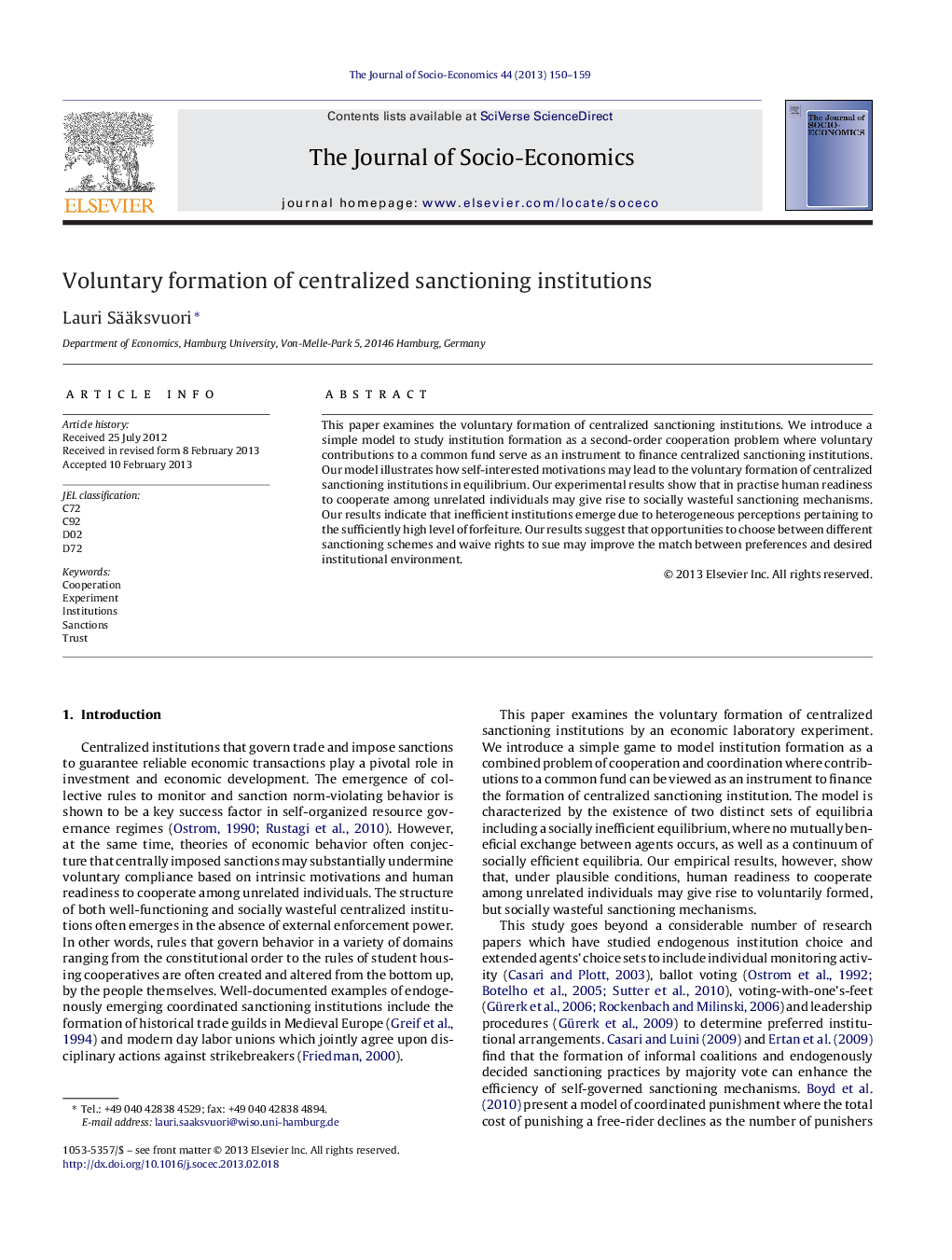| Article ID | Journal | Published Year | Pages | File Type |
|---|---|---|---|---|
| 970655 | The Journal of Socio-Economics | 2013 | 10 Pages |
This paper examines the voluntary formation of centralized sanctioning institutions. We introduce a simple model to study institution formation as a second-order cooperation problem where voluntary contributions to a common fund serve as an instrument to finance centralized sanctioning institutions. Our model illustrates how self-interested motivations may lead to the voluntary formation of centralized sanctioning institutions in equilibrium. Our experimental results show that in practise human readiness to cooperate among unrelated individuals may give rise to socially wasteful sanctioning mechanisms. Our results indicate that inefficient institutions emerge due to heterogeneous perceptions pertaining to the sufficiently high level of forfeiture. Our results suggest that opportunities to choose between different sanctioning schemes and waive rights to sue may improve the match between preferences and desired institutional environment.
► This paper introduces an experiment to study voluntary contributions to centralized sanctioning. ► Results show that voluntary contributions to centralized sanctioning may give rise to socially wasteful institutions. ► Wasteful institutions emerge due to heterogeneous perceptions pertaining to the sufficiently high level of forfeiture. ► Findings suggest that self-selection between different sanctioning schemes and waivers to sue may improve efficiency.
